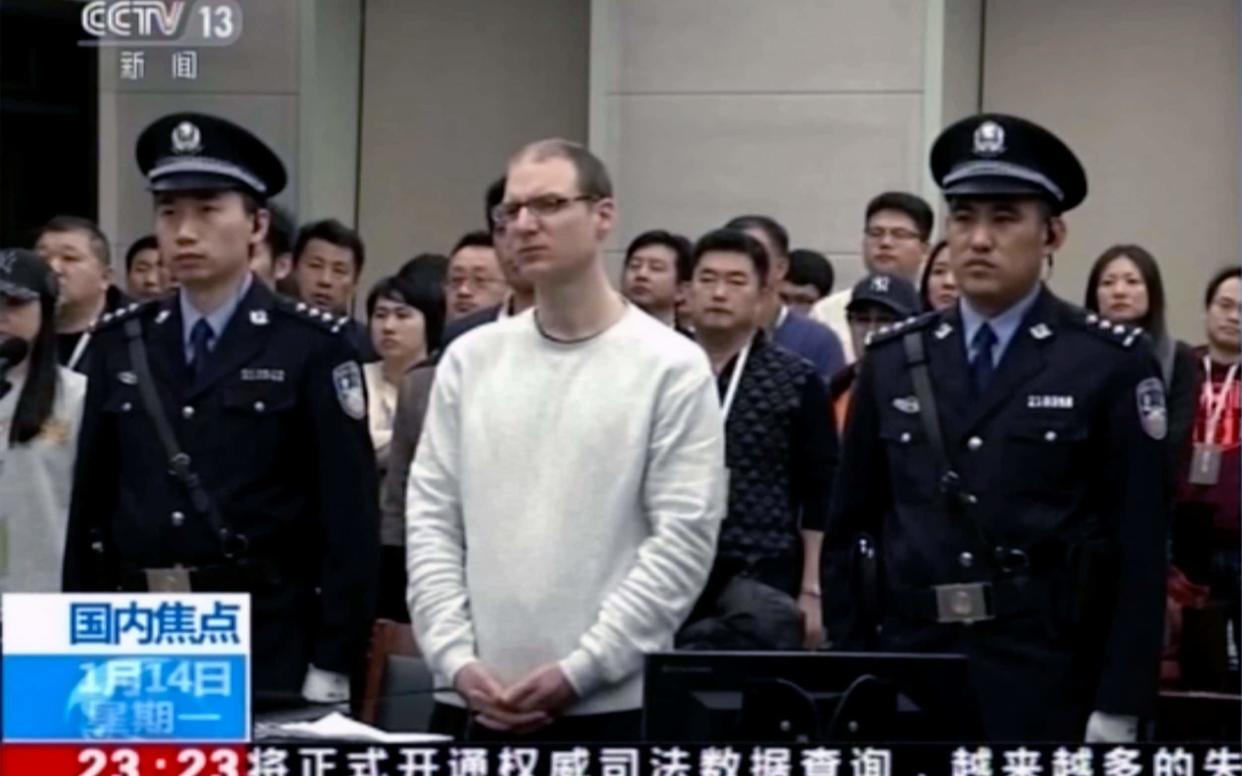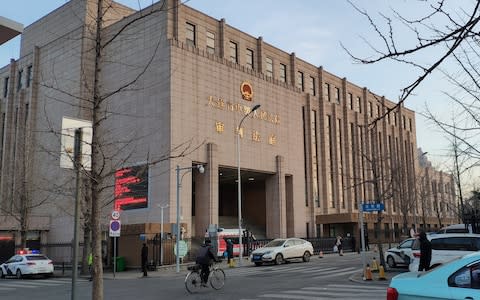China sentences Canadian man to death on drugs charges in trial linked to Huawei row

Justin Trudeau, the Canadian Prime Minister, has accused China of "arbitrarily" using capital punishment after it sentenced a Canadian citizen to death on drug trafficking charges.
The case has increased tensions between the two countries, coming weeks after Canada arrested Meng Wanzhou, a top Chinese telecoms executive, at the request of the US.
Robert Lloyd Schellenberg, 36, was initially given a 15-year prison sentence last November, but after an appeal a high court ruled the sentence was too lenient.
Schellenberg had declared his innocence during the day-long retrial on Monday insisting: "I am not a drug smuggler. I came to China as a tourist".
However a judge in the northeast city of Dalian said Schellenberg, who was detained in December 2014, played a "key part" in an international drug trafficking syndicate that planned to send some 222 kilogrammes (490 pounds) of methamphetamine to Australia.

Schellenberg said he had come to China after travelling through Southeast Asia, and that a friend recommended as a translator a man named Xu Qing, who swept him up in what turned out to be a smuggling gang.
Speaking after the sentencing on Monday, Mr Trudeau said: "It is of extreme concern to us as a government, as it should be to all our international friends and allies, that China has chosen to begin to arbitrarily apply the death penalty, as in this case facing a Canadian."
The 46-year-old, who is also the daughter of the company's founder, was granted bail in December. However the case has soured China's relations with both Canada and the US.
Chinese authorities have since detained two Canadian nationals - a former diplomat and a business consultant - on suspicion of endangering national security in a move seen as retaliation over the Huawei executive's arrest.
China has executed other foreigners for drug-related crimes in the past, including a Japanese national in 2014, a Filipina in 2013 and a Briton in 2009.
However experts said retrials are rare in China, especially ones calling for a harsher sentence, leading to speculation the move has been influenced by the diplomatic rift between Beijing and Ottawa.
Schellenberg can appeal against the sentence in an upper court.
"China has the ability to grant clemency, and this will be used as another pressure tactic against Canada," said Hugh Stephens, distinguished fellow at the Asia Pacific Foundation of Canada.
Beijing has repeatedly denied any links to Canada's arrest of the Huawei executive.
Last week, Mr Trudeau accused China of "arbitrarily and unfairly" detaining former diplomat Michael Kovrig and business consultant Michael Spavor, who were arrested nine days after Canada arrested Ms Meng.
Mr Trudeau suggested that Mr Kovrig still enjoyed diplomatic immunity, an assertion rejected by the Chinese foreign ministry on Monday.

